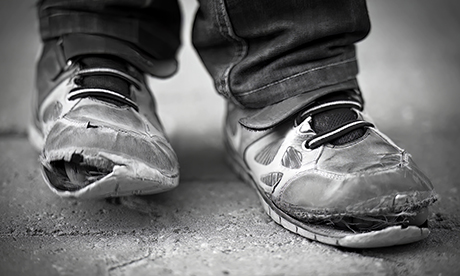According to Australian anti-poverty advocates, Australia should follow New Zealand’s lead and legislate to halve child poverty by 2030.
Anti-Poverty Week executive director Toni Wren said poverty ripples across the country. It finds its way into the homes of 760,000 children and affects women disproportionately.
“Our federal parliamentarians need to pass legislation to halve child poverty by 2030, with measurable targets and actions to achieve this goal,” Wren said.
“The New Zealand government introduced such legislation in 2018 and they’ve made great progress so that fewer children live in poverty. Setting targets enshrined in legislation works and changes lives for the better.”
Research released last week by the Australian Council of Social Service found one in eight people in Australia live below the poverty line. This is defined as 50 per cent of median after-tax household income after adjusting for household size. The research showed 760,000, or one in six children (16.6 percent), live in poverty.
Professor Carla Treloar, Director of the Social Policy Research Centre at UNSW Sydney, said the report highlights the unacceptable levels of poverty.
“Australia is one of the wealthiest countries in the world, yet we have one in eight people and one in six children living below the poverty line,” she said.
“There are 3.3 million people in Australia desperately struggling to pay the bills and put food on the table. There are 761,000 children who are denied a good start to life.”
The study also revealed people in poverty are falling further behind the rest of society, with their average weekly incomes dropping to $304 below the poverty line.
In the first three months of 2020, as large parts of the economy were shut down by COVID restrictions and thousands were put out of work, the poverty rate soared to 14.6 per cent. But boosted income support payments announced in April that year saw the poverty rate drop to a 17-year-low of 12 per cent over the next three months.
However, by April 2021, Coronavirus Supplement (initially $275 a week) was abolished and in its place JobSeeker and related payments were increased by just $25 a week.
“These figures should be a source of great shame for our nation. We can and must do better,” said ACOSS CEO Dr Cassandra Goldie.
The study showed there is a clear way to reduce child poverty in Australia, she said.
“Almost doubling the JobSeeker rate pulled 646,000 people out of poverty in 2020. That is a huge advance in an incredibly short period of time.
Source
Additional reading
News category: Palmerston, World.




